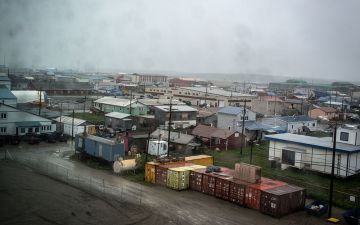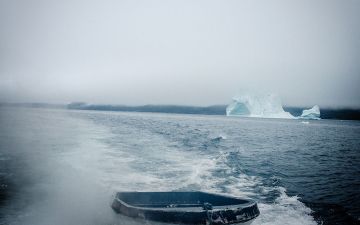All around the Arctic Ocean, the impact of climate change is spectacular:
Icecaps melt, glaciers disappear, mountains and rivers move. Some human settlements must be abandoned, others relocated. Fish schools migrate thousands of miles. Some regions lose their fishing fleets and their canneries; others can create a new fishing industry. Oil, gas and minerals buried under frozen ground are now reachable at lower costs. Harbors are being built to service the ships that will be sailing the northern route between Asia and Europe.
Indigenous nations, whose territories have been split in two by geo-strategic conflicts they have nothing to do with, now try to reunite. Foreign investors from various countries, including non-arctic powers such as France and China, move in and bring new money, new activities, new immigrants, new lifestyles, new problems.
Some local people welcome these unprecedented opportunities. They have dreams of wealth, power, even independence from their distant rulers. Others fear the disappearance of their traditional culture and lifestyle as well as the destruction of the pristine and fragile natural environment.
Here you will find stories of the changing lives in six small communities in Norway, Iceland, Russia, Greenland, Canada and Alaska.



